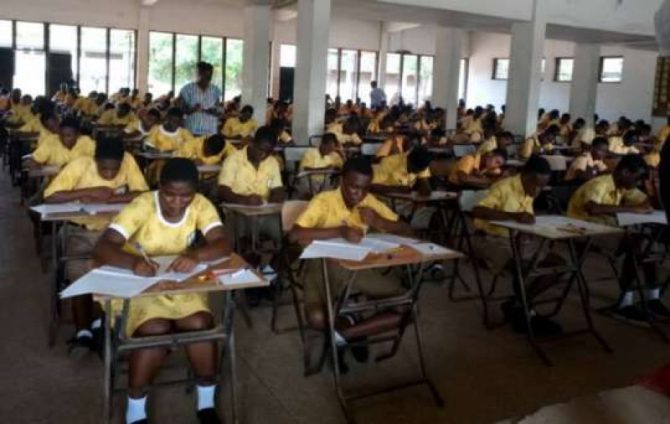A total of 470,768 primary pupils are expected to participate in the 2021 National Standardised Test today.
The national test will enable the Ministry of Education generate data on the performance of pupils in English Language and Mathematics.
According to the Education Ministry, the NST will help to build a strong educational system in the country by enhancing the learning outcomes of pupils while reducing the issue of learning poverty.
The test is not meant to grade pupils in primary four but to improve teaching and learning in the basic schools across the country.
Currently, the national test will be conducted in only public schools; however, there could be a consideration for enrolling private schools in subsequent ones.
Spokesperson for the Ministry, Kwasi Kwarteng, said in an interview on Prime Morning that the conduct of the test will aid in highlighting learning gaps to shape future educational policies.
“It’s nothing new, apparently because if you look at it we have a similar test already in our system. The BECE, for instance, gives us a test of a national significance and so at the end of the day, it’s an assessment regime where you have to test students and then know the policy response in terms of resource allocation interventions that you are giving to such students.”
“If you look at the test regime, based on the Education Strategic Plan and the assessment framework we’ve drawn at the Ministry, you realize that the test is supposed to be conducted among students in Class 2, Class 4 and Class 6; it is the commencement that starts with Class Four. So when students write in Class Two, by the time they get to Class Three, you’d be able to generate the data and know the learning gaps and then profess whatever interventions that you are able to come up with,” he added.
The NST falls within the ‘Education Strategic Plan’ which started in 2018 and is expected to end in 2030.
The first edition of the national assessment will be administered by the West African Examinations Council (WAEC) and the Ghana Education Service (GES).
It will address the challenge of many school-going children who have limited knowledge in numeracy and literacy, thereby helping to meet the United Nations Sustainable Development Goal 14, the Ministry had added.
There would be 2,850 examination centres with 200 pupils per centre. 15,391 schools will be participating.
Latest Stories
-
Ashanti, Nelly are engaged and expecting a baby
25 mins -
New Ghana train on test run involved in accident
31 mins -
World Bank, AfDB partner to provide 300m African’s with electricity access
38 mins -
Ghana wins preliminary ruling in Cassius Mining’s $300m international arbitration
48 mins -
Ghana’s revenue-to-GDP ratio to exceed 17% within next six years, but expenditure to remain flat – IMF
54 mins -
Gborbu Wulomo didn’t marry Naa Okromo – Chieftaincy Minister
1 hour -
Oquaye Jr. says he’s undeterred by ‘propaganda’ twist to viral laundry video
1 hour -
Ghana’s debt-to-GDP ratio to tumble to 69.7% in 2029 – IMF
2 hours -
Interior Ministry imposes 4pm to 7am curfew on Sampa
2 hours -
Child marriage: Teenage girl to be released to her family – Gender Minister-designate
2 hours -
Naa Okromo is 15 years old, still a virgin and not married to Gborbu Wulomo – Government
2 hours -
GhIE condemns intervention by Ashanti Regional Minister in ECG Affairs; commends ECG GM for upholding regulatory standards
2 hours -
GPL: Asantehene tasks Asante Kotoko to do ‘better’ after crucial meeting
2 hours -
Why Sam Jonah can’t trust Ghanaian journos to cover Election 2024 professionally
3 hours -
Laryea Kingston takes over as Black Starlets head coach
3 hours

